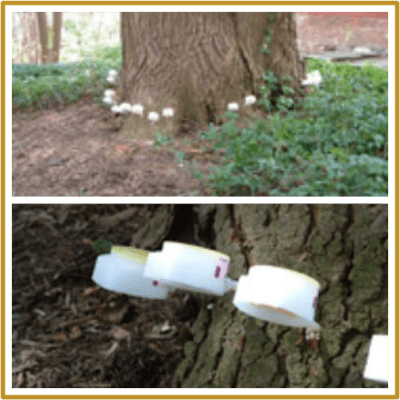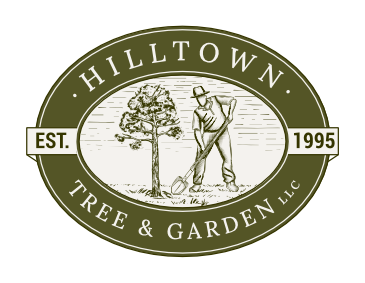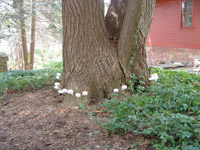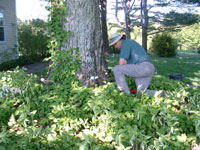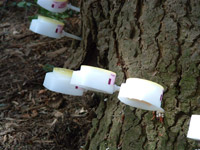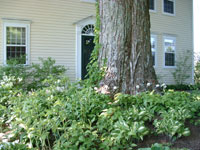Plant Care
Watering – The Most Important Plant and Garden Care Task
Now that your landscape or garden design project is complete, its success or failure is now dependent on whether or not you meet your plants’ water needs. Research has shown that a plant’s growth rate is affected for years by the way they were treated after transplanting. Failure to adequately water the first season will have short- and long-term repercussions on your landscape.
When: April – October: Mornings are best, but anytime of day is ok. November – March: No need to water.
How Much: 1.5″ of rainfall per week or if done manually with a hose: 5 minute per tree, 1 minute per shrub and 10 seconds per perennial.
How Often: 1 time per week in normal temperatures. 2 times in hot weather. The soil in the root zone should not become dried out. Do this for at least the first growing season and preferably the second.
How to Apply: Using a hose, apply water over the root area, not the leaves.
Two essential gadgets
1. Watering Wand – This is a 2.5 ft rigid extension that screws onto the end of the hose. It allows you to water without bending over and it distributes the water in a gentle shower that will not wash the mulch or soil off the root zone. It is available at most garden centers or hardware stores for $10 – $15.
2. Rain Gauge – This is a simple device that sticks into the ground and measures rainfall. If it reads less than 1.5 in of rain per week, you’ll know that the plants need more water. Until you pick one of these up, a coffee mug will suffice. Approximate cost is $5.
Do not use a sprinkler to water. Fifty percent of the water is lost through evaporation and the other 50% can lead to excessively high moisture levels on the foliage, resulting in water-born fungi. Sprinklers were meant for lawns.
Organic Pest Control – The Way Hilltown Tree and Garden Manages Pests
Organic Pest Control, also known as Plant Health Care or Integrated Pest Management (I.P.M.), is the way Hilltown Tree & Garden manages pests. Practicing Plant Health Care will significantly decrease, if not eliminate, the use of hazardous chemicals in the landscape.
There are two main reasons to practice Plant Health Care. The first is that it will promote a balanced ecosystem that will have few if any deleterious effects on non-target organisms like humans, pets, beneficial insects, water or air quality. The second reason is that it works both in the short- and long-run if properly implemented.
Our Plant Health Care programs focus on keeping your trees, shrubs, and perennials as healthy and vigorous as possible. A proper combination of pruning, mulching, and organic fertilization allows your plants to use their own natural defenses. In some situations these are not enough or need to be used in conjunction with the application of a bio-rational pesticide. Examples of bio-rational pesticides are horticultural oils, soap, neem, or Bacillus thuringiensis (BT). There are many choices and Hilltown Tree & Garden’s certified arborists are trained in the various options.
In the rare case that conventional pesticides are needed, a Massachusetts licensed pesticide applicator and certified arborist will apply the pesticide in an environmentally responsible manner. An example of this is our use of the Mauget System. This is a system where small holes are drilled into the trunk or buttress roots. Then pressurized capsules with a small amount of fungicide, fertilizer, or insecticide are inserted into the holes. The tree takes up the product into its vascular system and is distributed throughout the entire tree.
The Mauget System
The Mauget System is a proven method for controlling gypsy moth, hemlock woolly adelgid, eastern tent caterpillar, and forest tent caterpillar on large trees too tall to be sprayed with the bio-rationals, such as BT or horticultural oil.
Hilltown Tree & Garden takes its stewardship to the environment seriously. With an educated and holistic approach to pest management, landscapes can be managed in a way that benefits people, pets, trees, insects, air, and water.
The benefits of this system are:
- No off target drift
- Longer residual effect
- Reduced contact with beneficial organisms
- Less likely to decompose by sunlight and weather
